The tasks Joe Biden faces: from racial justice to restoring faith in science
- Oops!Something went wrong.Please try again later.
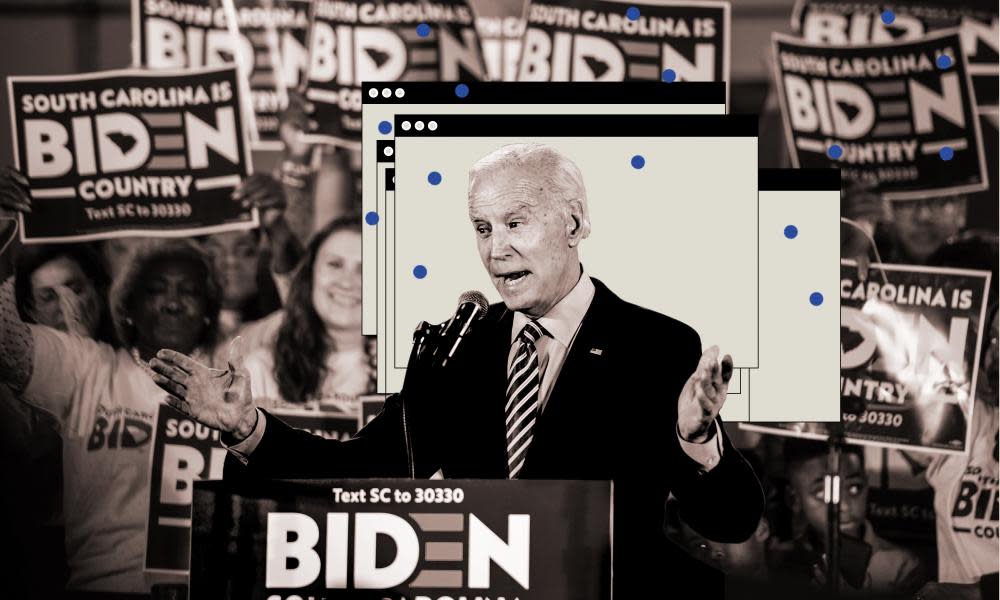
The coronavirus pandemic and healthcare
As the coronavirus pandemic tore through the US, Joe Biden’s most important promise to the American people was a policy platform taken for granted prior the Trump presidency: believe science.
America was already falling behind other developed nations on a panoply of key health metrics when the Covid-19 pandemic hit, and the worst of the pandemic is likely to bear down just as the Biden-Harris administration takes office.
After Donald Trump chose to downplay the threat of the virus and spread conspiracy theories, the US led the world in Covid infections and deaths.
Currently, more than 100,000 people a day are being diagnosed with the coronavirus. Experts predict as many as 200,000 Americans a day could receive Covid-19 diagnoses by Thanksgiving. More than 237,000 Americans have already been killed by Covid-19.
Some analyses suggest more than 90,000 Americans have died unnecessarily – and these figures probably underrepresent the problem.
Biden has pledged, “disciplined, trustworthy leadership grounded in science”, including another stimulus package, robust and free testing and treatment, investment in pandemic planning, and more support for underfunded public health authorities. A coronavirus taskforce is already being formed.
At the same time, Biden will have to wrestle with the fallout from the Trump administration, most notably, a supreme court case that could overturn the signature achievement of the Obama-Biden administration, the Affordable Care Act, better known as Obamacare.
Should the ACA be overturned, 20 million Americans could lose insurance during a pandemic, joining the ranks of 12 million who lost employer-sponsored coverage amid pandemic-induced layoffs, and the 27 million who lacked insurance at the beginning of the pandemic. This would make the uninsured crisis worse than that which drove the law’s passage.
It could also have unintended consequences. Biden will need to reckon with an insurgent left animated by a desire for single-payer healthcare called Medicare for All. This group is likely to be unsatisfied by incremental reform.
Restoring trust in science will not be simple after four years of lies, half-truths, misdirections and conspiracy theories. Jessica Glenza
The economy
When Biden enters the White House on 20 January many epidemiologists are hoping that the US will be pulling through the worst phase of the coronavirus pandemic. Where the economy is heading is less certain.
Covid-19 and the global economy are now so intertwined that there seems no certain hope of economic recovery until the virus is under control.
The pandemic triggered a wave of shutdowns and record levels of unemployment and temporary layoffs. About 20 million people lost their jobs in April as the unemployment rate hit 14.7%, the highest on record. Unemployment fell sharply to 6.9% in October but weekly claims for unemployment insurance remain historically high and the number of longterm unemployed is rising. The economic impact on the poor, women, people of color and the young has been dire.
Related: Big tech and corporate tax cuts: the targets of Joe Biden's urgent economic plans
Biden has pledged to use his presidential powers to force businesses to take the pandemic head on and increase testing and tracing, as well as manufacturing more personal protection equipment and ventilators.
He has said he would also issue new stimulus cheques to hard-hit Americans and increase payments to the unemployed that were cut by the Trump administration. Some of the cash would come from rolling back Trump’s biggest achievement – his $1.5tn tax cuts.
Expect Republicans to try to block or curtail new spending bills. Having run up a record $3.1tn budget deficit – the gap between what the US spends and what it earns through tax receipts and other revenue – Republicans are talking about the need to balance the books. The path for Biden’s recovery plan will be long and hard fought. Dominic Rushe

Immigration
In less than four years, the Trump administration pushed through more than 400 changes to the immigration system using every route available – from sweeping executive orders to small rule changes easily ignored by the general public. It amounted to an incredible assault on immigration that included the family separations which prompted a wave of international condemnation.
The first steps for Biden will be to undo most of these changes.
Some policies will need the US attorney general to step in, others can be done through executive orders while others still will have to go through the same, time-consuming rule-making process that was used to enact them. Many of Trump’s changes have also been met by legal challenges which are still working their way through the courts.
The Biden campaign said it would specifically walk back: country-specific travel bans, extreme restrictions on asylum seekers and refugees, and the public charge rule, which penalizes people seeking green cards if they have used public benefits. It’s been reported that shortly after inauguration day, Biden will reinstate protections for Dreamers and repeal the bans on almost all forms of travel from some Muslim-majority countries.
The campaign has also made clear the platform for moving forward. Biden supports creating a pathway to citizenship for 10.5 million undocumented immigrants and reinstating protections for undocumented people who were brought to the US as children, known as Dreamers.
Cristóbal Alex, a senior Biden adviser, told CBS that Biden would end for-profit immigration detention. Such a move would in part be an attempt to repent for heavily criticized policies used when Biden was vice-president in Barack Obama’s administration, which conducted more deportations than Trump.
Amanda Holpuch
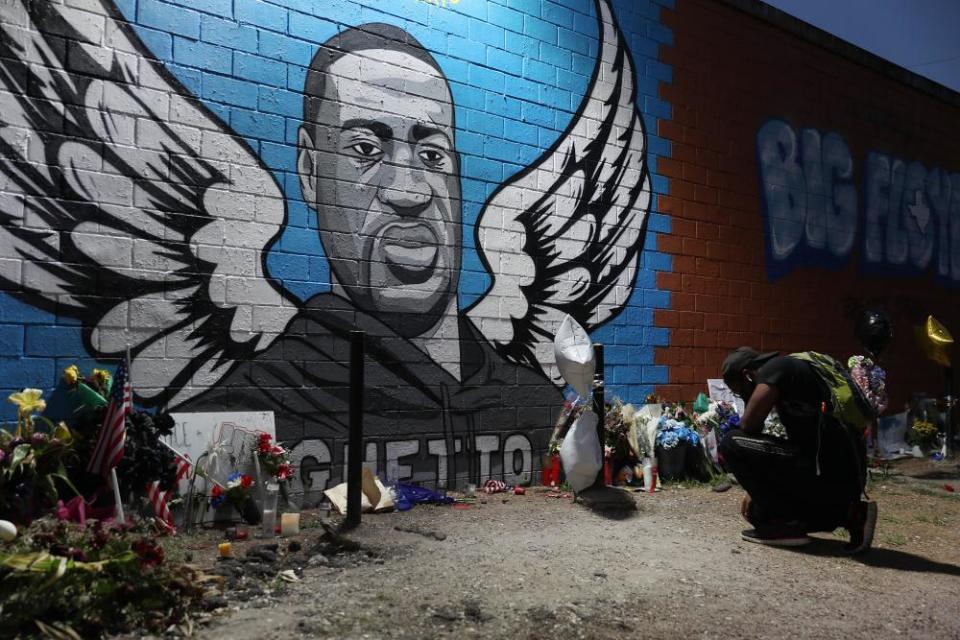
Racial justice and police reform
Biden has faced intense scrutiny over the 1994 crime bill that drove mass incarceration of Black Americans and racial inequities for generations. He has since called his support of the legislation a “mistake”, and has pledged a new direction for criminal justice, including efforts to repeal federal mandatory minimum sentences.
He also plans to launch a grant program that would encourage states and cities to reduce incarceration, and has said he would expand alternatives to prison for certain drug offenses. Biden has further promised to decriminalize marijuana and expunge prior cannabis use convictions. He has declined, however, to support marijuana legalization and has faced criticisms from the left for his support of “mandatory” rehabilitation for drug crimes, which some say is a punitive and ineffective approach.
In contrast to Trump, Biden has said he would work to eliminate the death penalty.
In the wake of this year’s historic uprisings against police violence and systemic racism, the Biden administration is, however, likely to face intense scrutiny from progressive groups that have pushed for more aggressive efforts to rein in law enforcement.
Biden has said he would expand the authority of the US justice department to address misconduct in local police and prosecutors’ offices, a practice pushed by the Obama administration. But Biden has rejected calls to defund police budgets and reinvest money into services, promising instead to invest more funding into police for reforms, including diversifying police forces, instituting body cameras and community policing initiatives (policies that, activists say, have done little to prevent abuses).
On housing justice, Biden has pledged to restore anti-discrimination rules that Trump eliminated, and has promoted desegregation efforts. Sam Levin
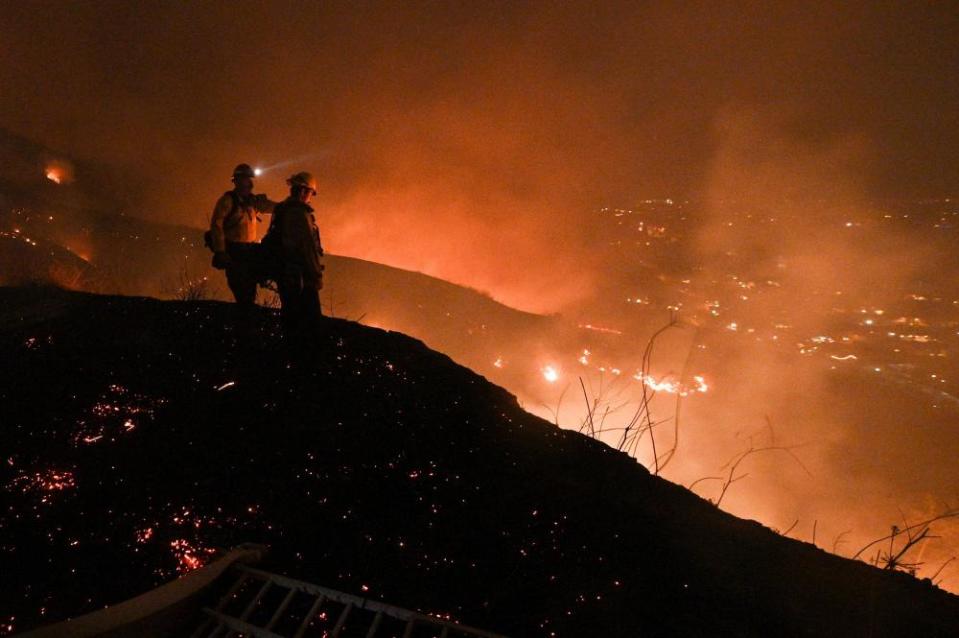
The environment and climate change
Biden faces an uphill battle to tackle an escalating climate crisis that has been either ignored or actively worsened under the Trump administration. Scientists and climate activists have at least been heartened by Biden’s belated ambition to address what he calls an “existential threat” to the US. “The wrath of climate change is here, now, in America,” Biden said in the wake of a year wracked by record wildfires and storms.
A first goal can be ticked off immediately – rejoining the Paris climate agreement that the US left at the behest of Trump. The world’s second largest emitter of planet-heating gases will be ushered back into a leadership role by a relieved international community that is struggling to restrain increasing temperatures, but it will be domestically where Biden will have to win credibility.
Executive actions will be able to halt new coal mining and oil drilling on federal land and waters, while a slew of clean air and water regulatory rollbacks at the Environmental Protection Agency under Trump will probably be reversed. Biden has vowed to fight the air pollution that blights communities of color and has a $2tn plan to shift the US to clean energy and create millions of jobs in renewables. This plan, along with any new attempt to stamp out carbon emissions from the creaking coal sector, will hinge upon sweeping co-operative action from Congress, although the Senate appears likely to remain in recalcitrant Republican hands. A conservative supreme court, too, may well strike down any Biden administration attempt to roll back the rollbacks.
Some are sceptical that Biden will be able to cut through a decade of political impasse over the climate crisis. But a few minds may be focused by the growing alarm among American voters over the impact of global heating. After all, the climate crisis is a timed challenge and time is rapidly running out. Oliver Milman
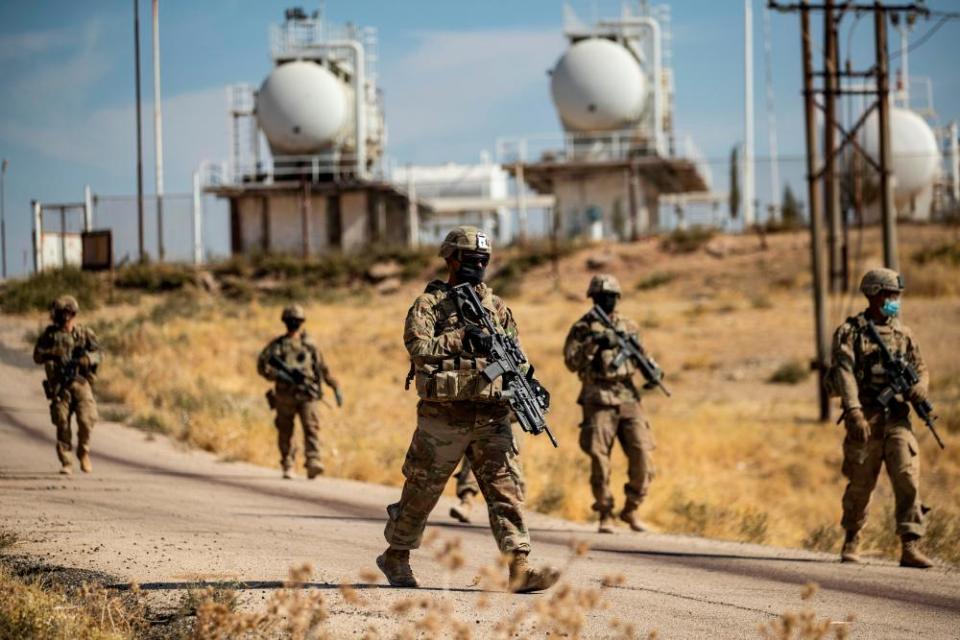
Foreign policy
Biden already has a full programme of foreign policy and national security tasks mapped out for his first few weeks, most of it focused on undoing the actions of his predecessor.
In fact, 20 January will be something of a handbrake turn in America’s relationship with the rest of the world. Biden will seek to knit together what Trump has unravelled.
That will begin with rejoining the Paris climate agreement and the World Health Organization. There will be just over two weeks left to run of the New Start treaty, the last arms control agreement remaining in the wake of the Trump era, limiting US and Russian deployed strategic warheads to 1,550 apiece. Biden will seek to extend the treaty by up to five years in an exchange of notes with Vladimir Putin, buying time for more negotiations on warhead stockpiles.
The administration will also start work on organising a summit of major democracies in 2021, which the Biden team sees as a way to sidestep the impasse at the UN security council and reinvigorate multilateral diplomacy.
Another priority is likely to be the reconstitution of the 2015 nuclear deal with Iran. Since Trump pulled the US out of the deal in 2018 and imposed blanket sanctions on Iran, Tehran has been steadily shrugging off the constraints on its nuclear activities it accepted as part of the agreement. Saving the deal will involve negotiating a sequence of steps by which each country returns to where they were two years ago before Trump’s abrogation.
The standoff with China in the western Pacific will be on the president’s desk, but how high up it will be in the urgent to-do pile depends on Beijing and whether it tries to exploit the US transition with an aggressive move towards Taiwan or in the South China Sea. Julian Borger
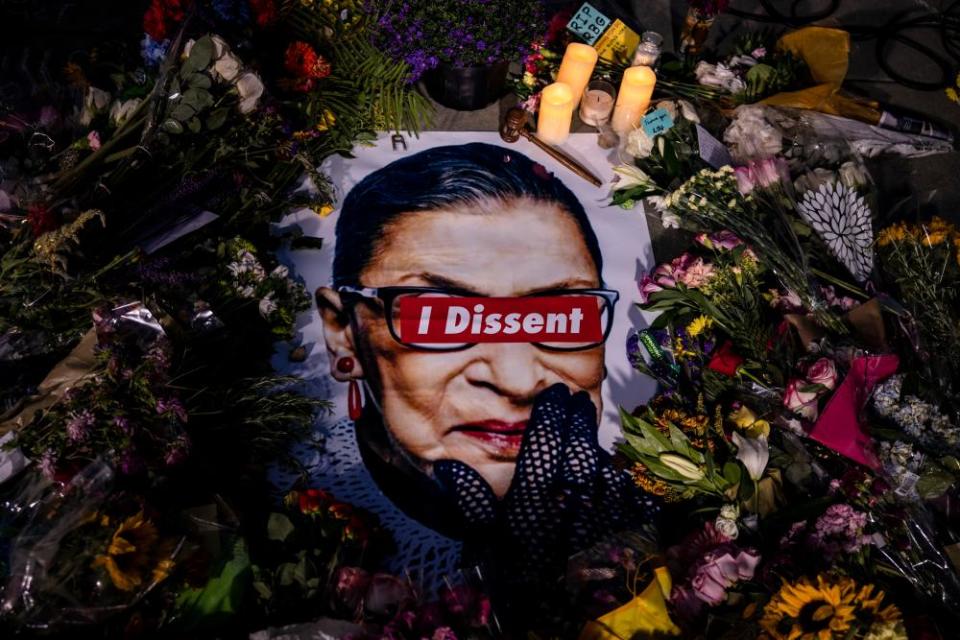
The courts
Before the election, the question was: what will Biden do about the supreme court?
The hijacking by Senate Republicans of one court seat and a power play to fill another seat on the eve of the election prompted strong calls from the left for a President Biden to expand the court.
But those calls relied on the Democrats taking control of the Senate, which they still might do – but that would require a long-shot win in not just one but two US Senate runoff elections in Georgia on 5 January.
As a candidate, Biden announced that he would convene a working group to deliver recommendations about possibly adding seats to the court, instituting term limits or other measures.
Apart from that, the work to be done for Biden in shaping the federal courts is limited in a sense, because Trump and his accomplice Mitch McConnell already did it all. Trump is leaving behind zero vacancies on the US appeals courts – the level below the supreme court – and relatively few district court vacancies for the next administration to fill. By contrast, Trump came into office with 17 appeals court vacancies to fill, thanks to stonewalling by McConnell of Barack Obama’s nominees.
But the Biden administration has important work ahead where the courts are concerned. A number of judges appointed by Democratic presidents who put off retirement during the Trump presidency now might retire, creating vacancies for which judges must be reviewed and vetted.
In a larger way, the Biden administration will have to address a legitimacy crisis in the courts, created by the Amy Coney Barrett confirmation and a larger sense that Republicans used levers of Senate power to install a conservative majority on the court that has enormous power over the daily lives of Americans but does not reflect the country’s people or their views. Tom McCarthy
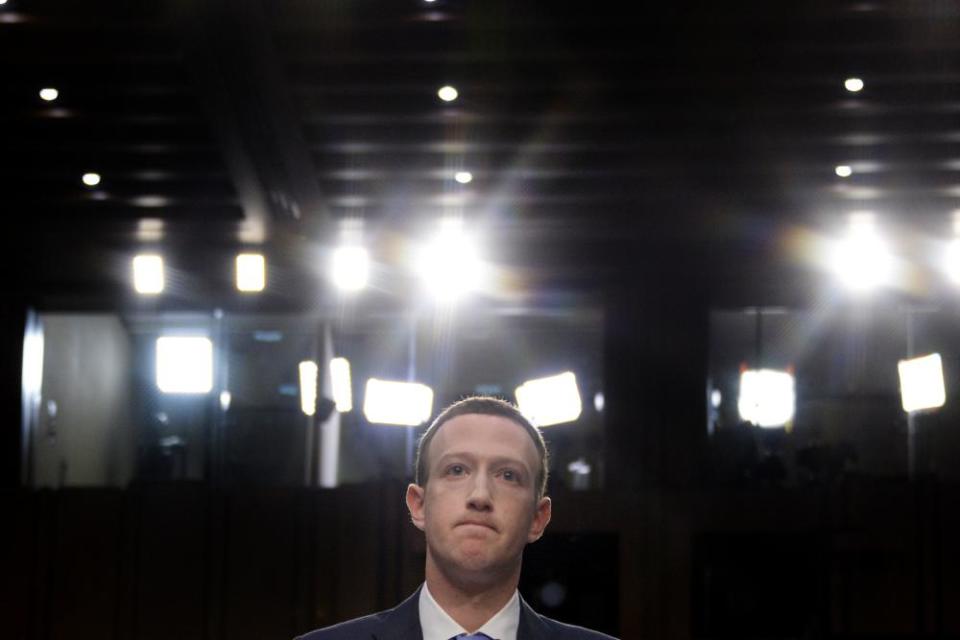
Big tech
In his first term as president, Biden will need to engage in the ongoing campaign to address monopoly power in the tech industry. Though the Department of Justice charges brought against Google in October were spearheaded by the Trump administration, a Biden administration can take the reins and continue the bipartisan effort.
There is also the question of how to address labor issues in the gig economy. As Biden championed strengthening unions as one of his key platforms, he will be expected to pursue reform in the gig economy. In his campaign, he promised to “ensure workers in the gig economy receive the legal benefits and protections they deserve”.
The passage of California’s Prop 22, a bill exempting gig economy companies from labor laws that Biden opposed, represented a major setback for this mission.
Biden also promised in his campaign to invest $20bn in rural broadband infrastructure. “Universal broadband is long overdue and critical to broadly shared economic success,” Biden said. This includes expanding the government’s Lifeline Program, a subsidised phone and internet service provider, to give more Americans access to the internet.
Biden has spoken out in the past against section 230, a part of the Communications Decency Act that exempts tech platforms from being held liable for content that users post. He said in January that section 230 “immediately should be revoked” for Facebook and other platforms.
Repealing section 230, which non-profit digital rights organization the Electronic Frontier Foundation calls “the most important law protecting internet speech”, would have grave consequences. Blogs and social media would look radically different, reducing the scope of what users can post about and potentially limiting how frequently they can post content. Kari Paul

